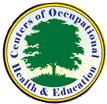Center of Occupational Health & Education (COHE)

The Center of Occupational Health & Education (COHE) at UW Medicine | Valley Medical Center of the Puget Sound has been enrolling providers at UW Medicine and other community healthcare providers throughout King and Pierce counties since the inception of COHE pilot in February 2002. Since that time, the COHE program has expanded throughout the State of Washington on the foundation initially established by the Renton COHE. We are proud of our historical partnership with the Department of Labor & Industries (L&I), the University of Washington, and other healthcare entities throughout the state. We remain dedicated to expanding community expertise in both occupational healthcare and disability prevention. A key component to the COHE program and fundamental to its success was the creation of the Health Service Coordinator role. This role continues to be paramount in the overall success of the program.
Health Services Coordinators (HSCs) work directly with the injured worker, employer, health care provider, L&I, and others to coordinate the care and return-to-work activities for injured workers. Community healthcare providers participating in COHE receive education on occupational health best practices and incentive pay for following best practices. Providers participating in the COHE have access to Health Services Coordinators who provide support and expertise to assist providers and their patients.
Core COHE services
- Health Services Coordination supporting providers, patients, and employers throughout the first year of treatment.
- Engagement with employers about return to work options supporting both their business needs and that of the injured worker.
- Training of health providers on occupational health best practices.
- Helping providers implement best practices in their office(s).
Health Services Coordinators (HSCs) Support Providers, Workers, and Employers
The Health Services Coordinator role is instrumental to the success of the COHE. Their role is to provide education and training to all parties in the navigation of the sometimes complex worker’s compensation system. Each COHE provider is assigned a HSC who reviews and supports their worker's compensation practice.
HSC standard work includes (when needed):
- Coordination and tracking of referrals.
- Assessment of barriers to recovery.
- Referral to community services.
- Assistance with medication issues.
- Coordination of return to work.
- Support during transitions of care.
- Ongoing monitoring of recovery.
- Coordination of surgical care.
Our Health Services Coordinators have a wealth of information, knowledge, and experience to support those involved in the claims process. Their contact information is located to the left of this page. If you are a worker, employer, or provider, feel free to reach out to them with questions.

For Providers:
Participation in COHE has advantages for the practicing provider. Support and training involving the following occupational best practices is provided via COHE advisors and Health Service Coordinators.
- Submitting a timely and complete Report of Accident (ROA) form to ensure claims are opened quickly.
- Completion of an Activity Prescription Form (APF)) during the first office visit, or when patient restrictions change, so that the worker, employer, and claim manager understand the treatment plan and recovery expectations.
- Discussing return-to-work options with the employer when the worker has restrictions.
- Identifying barriers to recovery and solutions to those barriers with each worker.
- Prescribing opioids appropriately.
Click here to access more information and report forms.
Click here to access more information about provider incentives including fee schedules.
Resources:
The Department of Labor & Industries has a number of resources available to support providers, employers, and injured workers. Key resources are listed below.
- What to do if you are injured on the job. Click Here
- Claim & Account Center. For workers, providers, and employers. Get secure access to your information at L&I and take advantage of secure online services. Click Here
- Light Duty Job Information: For workers For employers
- Questions about claims and insurance? Click Here
- To find a COHE provider: Click Here
Need more information on COHE? Check out Washington State L&I Website

